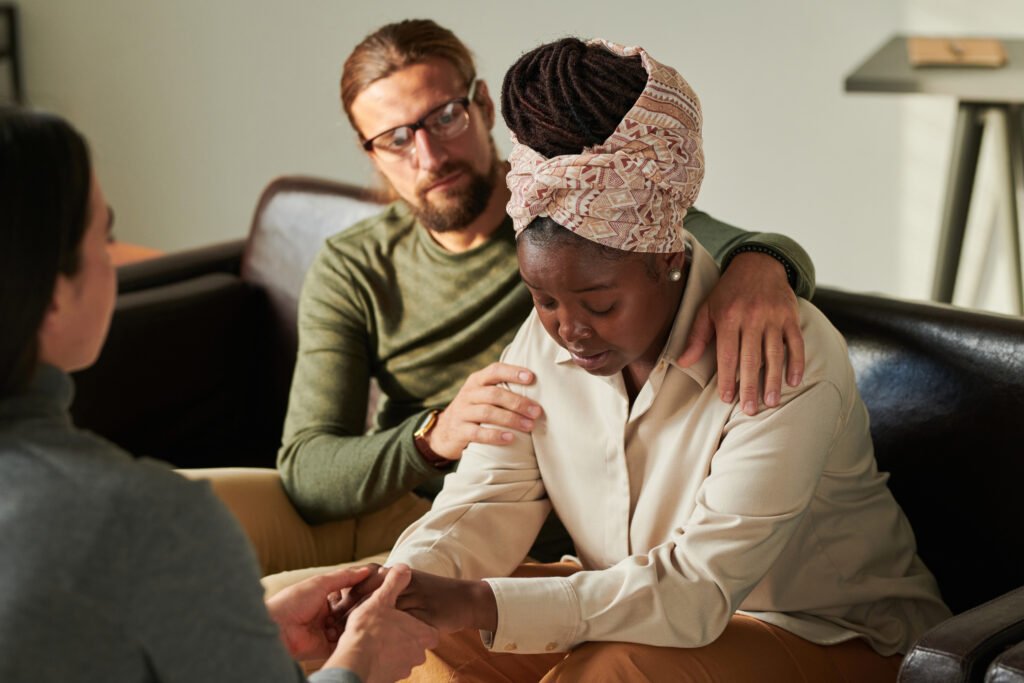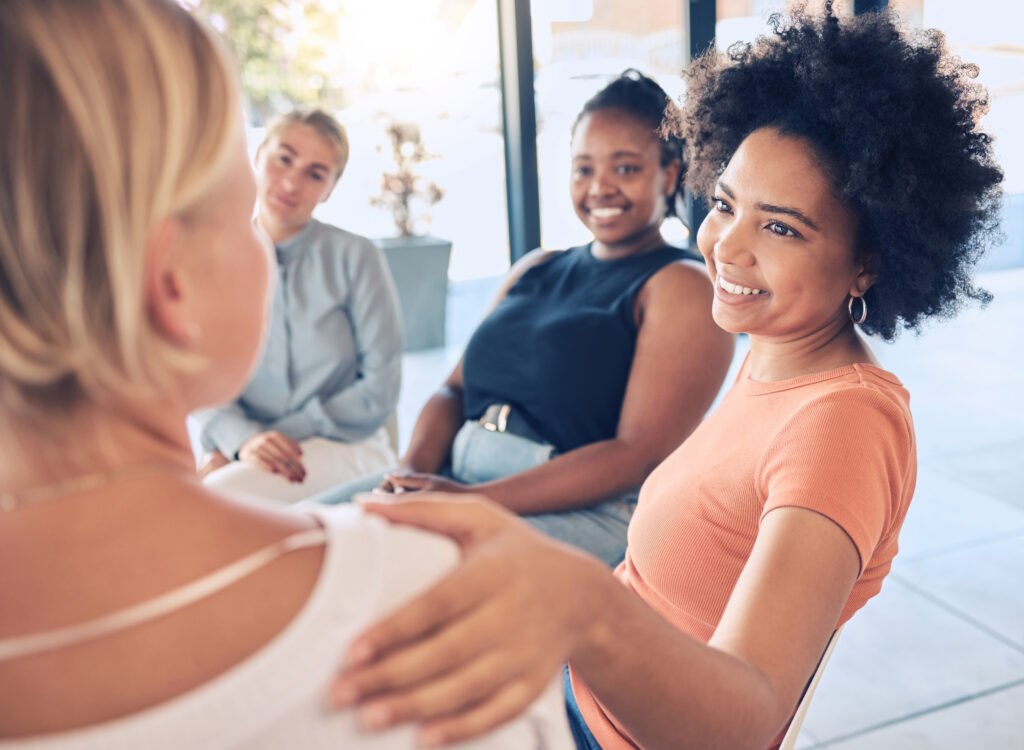Empowerment is a cornerstone to rebuilding lives, restoring confidence, and finding hope. It is more than just a conversation. It’s a lifeline — a place where survivors can find understanding, support, and a path to healing.
Empowerment through counselling is about reclaiming control over one’s life. It’s making informed decisions, gaining confidence, and envisioning a future free from fear and violence.
In the following sections, learn about seven powerful ways that domestic violence counselling can empower survivors. These strategies aren’t just theoretical; they’re practical, real-world approaches that have made a tangible difference in countless lives.
Let’s explore how counselling can transform the lives of survivors, helping them regain their strength and independence.
Building confidence and self-esteem
Domestic violence can shatter a survivor’s sense of self-worth. Counselling empowers them to reclaim their value through various techniques.
Therapists might use positive affirmations to help survivors challenge negative self-beliefs and cultivate self-compassion. By focusing on their strengths and accomplishments, survivors begin to rebuild a positive self-image.
Setting and achieving personal goals is another important aspect of building confidence. Counselling guides survivors in setting small, achievable goals, like taking a yoga class or mastering a new recipe.
Each accomplishment, however small, reinforces a sense of self-efficacy and fuels the motivation to tackle bigger challenges. This journey of goal setting and achievement empowers survivors to believe in their own capabilities and embrace a brighter future.
Developing healthy relationships
Domestic violence can leave survivors questioning their ability to trust and build healthy connections. In cases like these, counselling provides a safe space to heal and rebuild that foundation.
Therapists guide survivors in recognising unhealthy patterns they may have overlooked — like jealousy disguised as affection or control masked as love. By examining past experiences, survivors learn to identify red flags early on, protecting themselves from future harm.
Rebuilding trust takes time and support. Counselling empowers survivors to reclaim their self-worth and rebuild their confidence in forming healthy connections. Imagine positive relationships – friends who offer a listening ear without judgement, and partners who respect boundaries and foster open communication.
Counselling also helps survivors to identify these qualities and cultivate those connections. By building a network of healthy relationships, survivors create a foundation for emotional well-being and a future filled with love and respect.
Gaining independence and autonomy
Domestic violence often involves financial control and manipulation. Counselling empowers survivors to reclaim their independence by focusing on two key areas: financial security and decision-making skills.
Therapists can guide survivors in creating a budget, understanding their financial situation, and exploring options for building financial security. This might involve connecting them with resources like job training programs, financial literacy workshops, or legal aid to navigate financial separation.
Domestic violence can erode a survivor’s confidence in their ability to make decisions. Counselling provides a safe space to practise making choices, big or small.
Therapists might use exercises like identifying personal values, exploring options for different situations, and weighing potential consequences. By strengthening these skills, survivors regain control over their lives and make choices that align with their needs and goals.
Trauma-informed therapy creates a safe space for survivors to heal. Therapists utilise techniques like CBT or EMDR to address trauma’s impact and empower survivors to manage their emotions effectively.
Coping with trauma and emotional healing

Domestic violence can leave lasting emotional scars. Counselling offers a trauma-informed approach, acknowledging the impact of trauma and prioritising a safe, supportive environment for healing.
Learning to manage emotions is important for healing. Therapists help survivors gain emotional regulation skills, like deep breathing exercises or mindfulness practises. By developing these tools, survivors can deal with difficult emotions in a healthy way and build resilience for the future.
Enhancing communication skills
Domestic violence can silence a survivor’s voice. Counselling empowers survivors through assertiveness training, teaching them to express needs and boundaries clearly and confidently. Role-playing exercises allow them to practise healthy communication skills in a safe environment.
Survivors also learn conflict resolution strategies. Therapists guide them in identifying communication pitfalls and practising techniques like active listening and compromise. By developing these skills, survivors navigate future relationships with greater clarity and confidence.
Taking back control

Domestic violence counselling prioritises a survivor’s safety above all else. Therapists guide survivors in identifying risk factors in their relationship, such as increased jealousy, threats, or substance abuse.
Creating a safety plan involves identifying escape routes, safe havens (trusted friends or shelters), and a communication plan for contacting emergency services discreetly.
Therapists can also connect survivors with resources like legal aid and support groups, building a safety net for their well-being.
Finding community and support
Counselling isn’t the only path to healing. Support groups offer a powerful sense of belonging and connection. Sharing experiences with others who understand can be validating. Activities like group discussions or creative exercises can foster a sense of empowerment and hope.
Building a support network beyond counselling is crucial. Therapists can guide survivors in identifying trustworthy individuals and organisations. This might involve reconnecting with supportive friends and family, or exploring local advocacy groups. By surrounding themselves with a positive support system, survivors can build resilience and create a brighter future.
Need support? Here is where you can get help
When facing domestic violence, knowing where to find help can make a huge difference. Australia offers a range of resources and services to support survivors. Here’s a look at some of the key resources available and how to reach out for help.
National Domestic Violence Hotline
The National Domestic Violence Hotline provides 24/7 support for anyone experiencing domestic violence. Trained counsellors are available to listen, provide advice, and connect you with local services. You can reach the hotline by calling 1800 RESPECT (1800 737 732). This service is confidential and available for anyone needing support.
Local Support Services
Many local organisations offer support and counselling services specifically for survivors of domestic violence. These include:
- Women’s Legal Services: Provide legal advice and representation for women facing domestic violence.
- Community Health Centres: Offer counselling, support groups, and other services to help survivors rebuild their lives.
- Shelters and Safe Houses: Provide a safe place to stay for those escaping violence. Shelters often offer additional support services, including counselling and legal assistance.
Online Resources
There are also numerous online resources that provide information and support. Some useful websites include:
- 1800RESPECT: Offers information, counselling, and support for those affected by domestic violence. The website includes resources for immediate help, safety planning, and recovery.
- ReachOut: Provides mental health support and information for young people, including those experiencing domestic violence.
- Our Watch: Focuses on preventing violence against women and children. The site offers resources for understanding and addressing domestic violence.
Counselling Services
In addition to the above, many private counsellors and psychologists offer services for survivors of domestic violence. You can find a registered professional through organisations like the Australian Psychological Society or the Australian Association of Social Workers. These professionals can provide personalised support and help you develop strategies for recovery.
Emergency Services
If you are in immediate danger, always call 000 for police assistance. The police are trained to handle domestic violence situations and can help ensure your safety.
Reaching out for help is a courageous first step towards rebuilding your life. These resources are here to support you every step of the way. Remember, you are not alone, and there are people and services ready to help you find safety and start your journey towards healing.
The Power of Empowerment
Domestic violence counselling isn’t just about healing from the past; it’s about building a future filled with confidence and strength. By seeking help and utilising available resources, survivors can reclaim their voice, develop healthy relationships, and create a safety net for their well-being.
Remember, you are not alone. Counselling empowers you to get the help you need to tackle this journey and embrace the possibility of a brighter future.

